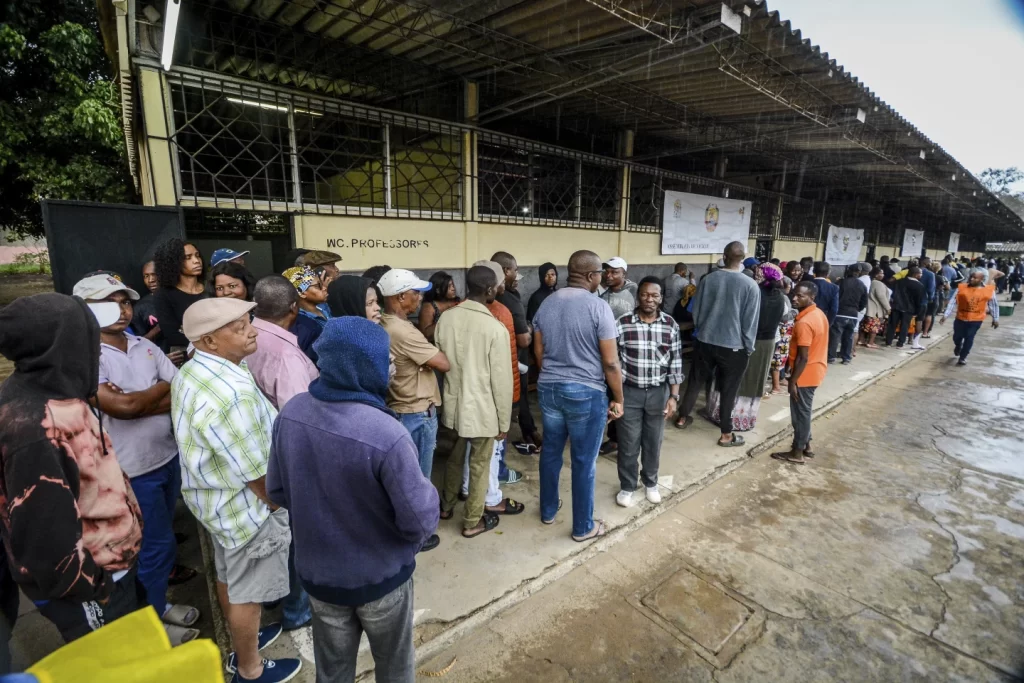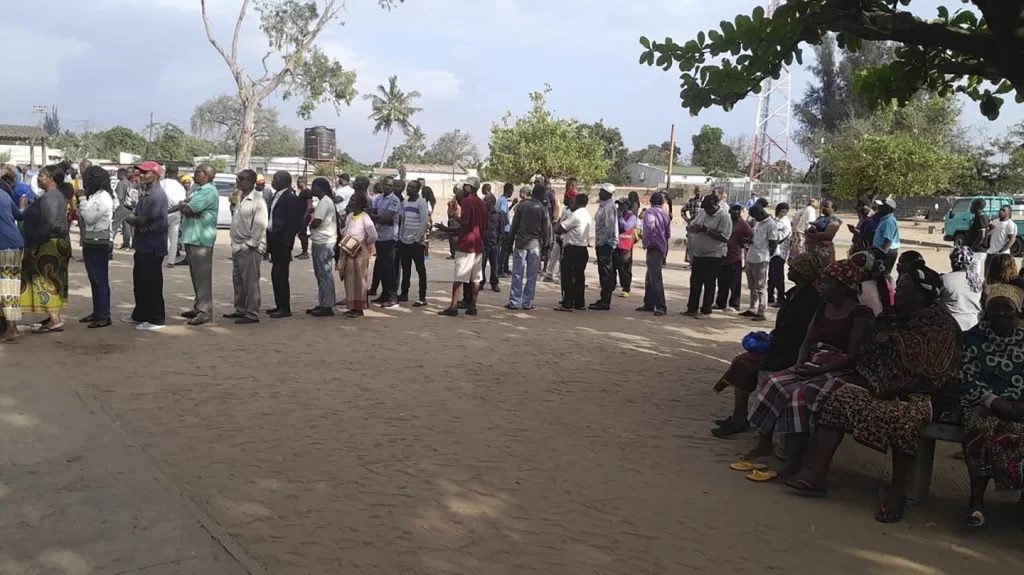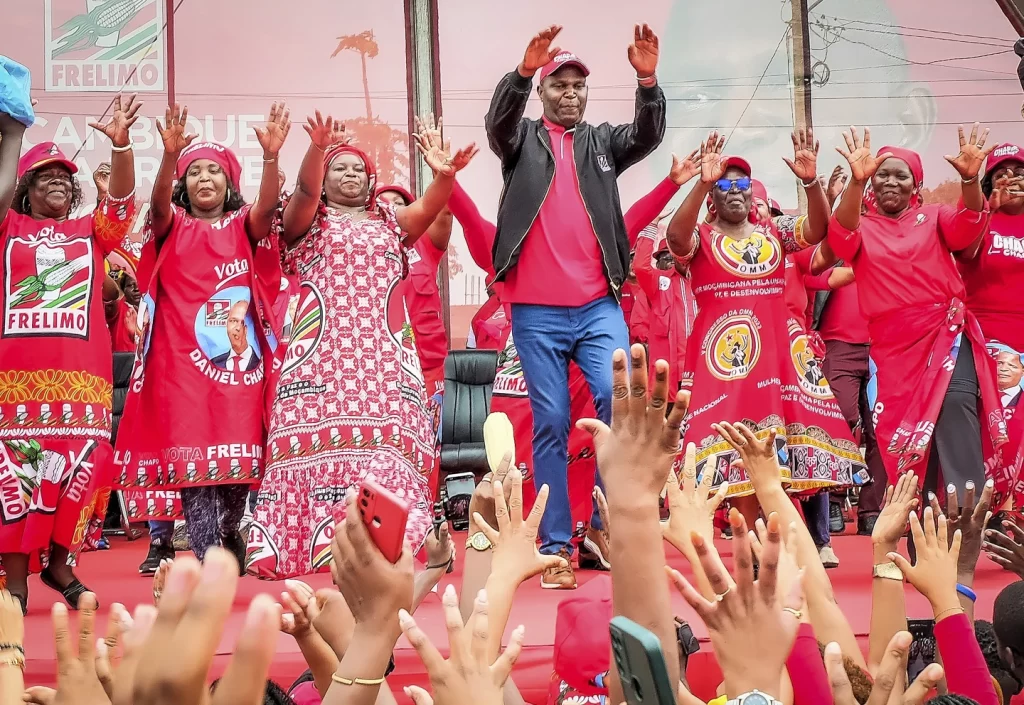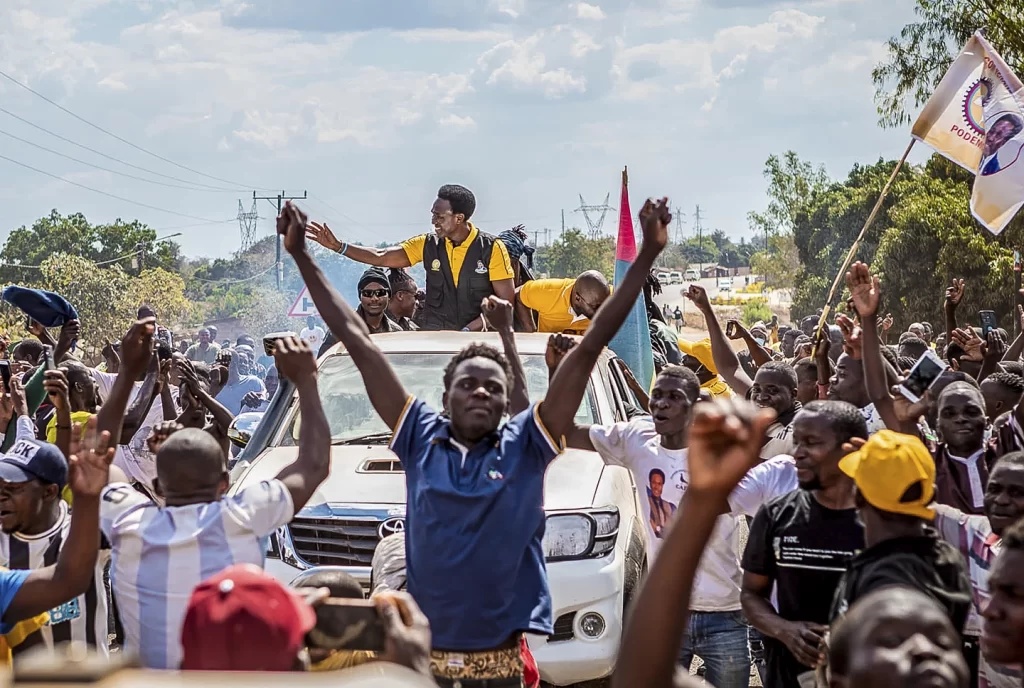Mozambicans headed to the polls on Wednesday to elect a new president and parliament in a vote that could extend the ruling Frelimo party’s 49-year grip on power since the country gained independence from Portugal in 1975.

Daniel Chapo, 47, the Frelimo candidate, is seeking to succeed term-limited President Filipe Nyusi. Chapo, a former law professor and provincial governor, would become Mozambique’s first leader born after independence if elected.
The strongest challenge to Frelimo’s dominance is expected to come from Venancio Mondlane, a 50-year-old independent candidate who has galvanized support among young voters frustrated with poverty and unemployment. Mondlane, formerly aligned with the opposition Renamo party, is now backed by a new party called Podemos (“we can” in Portuguese).

Two other candidates are also vying for the presidency: Ossufo Momade of Renamo and Lutero Simango of the Mozambique Democratic Movement, though both are considered longshots.
Approximately 17 million registered voters will also elect members of parliament and provincial governors. Polling stations opened early Wednesday morning, with vote-counting set to begin immediately after polls close. Preliminary results from some areas are expected Thursday, but final results must be delivered to the Constitutional Council within 15 days for validation.

Key issues in the election include ending the ongoing jihadist insurgency in the northern Cabo Delgado province, where 1.3 million people have been displaced, as well as addressing poverty, youth unemployment, and government corruption.
At a polling station in Maputo, 35-year-old Felicidade Simao expressed hope for change: “I am still selling biscuits at a vegetable market here in Maputo to take care of my two children. My husband is unemployed and we are struggling. I want the best for my children and the winner of this election must make the dream of a better life in the future.”
The election’s credibility is under scrutiny, with Frelimo accused of ballot-stuffing and falsifying results in previous votes, allegations the party consistently denies. International observers, including a team from the European Union, are monitoring the process.

Frelimo has dominated Mozambican politics since independence, fighting a 15-year civil war against Renamo before the country’s first multi-party elections in 1994. Despite a 2019 peace deal, tensions between the former warring parties persist.
Most analysts expect Frelimo to retain power, though potentially with a reduced majority. The Pangea risk consultancy noted that Chapo’s candidacy has been “carefully stage managed” by the party.
Mozambique faces significant challenges, including recovery from recent cyclones, ongoing drought in southern Africa affecting food security, and fallout from a $2 billion government embezzlement scandal uncovered in 2016.
As the country awaits election results, the outcome will shape Mozambique’s approach to its myriad economic and security challenges in the coming years.



